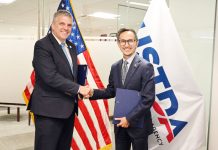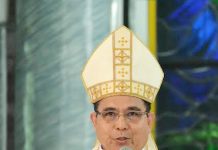GOVERNMENT CENTER, PALO, Leyte- The controversy on Dengvaxia was blamed by the health officials in the region for the drop of their accomplishment on their anti-measles campaign.
Because of the controversy generated by the Dengvaxia issue, parents are now hesitant, if not outright reject, any vaccination campaign like anti-measles being administered by their department, Boyd Cerro, regional chief of epidemiology and surveillance unit of the DOH, said.
Last year, their measles immunization campaign has only reached 62.70 percent which was lower compared to the 71.08 percent in 2016.
The controversy on Dengvaxia, which generated so much media coverage, started to come to light in 2017 though the campaign was made in 2016 covering Central Luzon, Calabarzon, Metro Manila and some cities in Cebu involving more than 837,000 students in public schools.
Cerro said that while the region was not among the regions where the Dengvaxia vaccine was administered, the controversy it created result in negative impression to the department’s immunization campaigns.
“But because of the controversy, parents in the region are now hesitant to any immunization program of the DOH. Some even reject that their children be given any vaccines from the department. They are now afraid to have their children immunized because of the controversy generated by the Dengvaxia issue,” the health official said.
In 2017, out of the targeted 127,032 children below two years old, only 79,651 were able to be given with the anti-measles vaccine or just 62.70 percent.
And this drop of number of children getting the measles vaccine is a cause of alarm to them, Cerro said.
“This could result to a measles outbreak considering of the low turnout of our (coverage) campaign of anti-measles vaccine,” he said.
The DOH-8, however, has yet to monitor any outbreak of measles in the region.
Because of this situation, they have strengthened their campaign for parents to allow their children have the measles antidote.
Cerro said that while they have not administered the Dengvaxia vaccine in the region, they were still able to monitor 96 children, whose ages ranged from 11 to 19, to have been given the said vaccine.
He said that 80 of these children received the vaccines from private physicians while the 16 others were children who were from the places where the vaccine was administered like Zambales and Cebu but were in the region for a vacation or Christmas break.
“Eight of them were confined in the hospital with only six of them to have been confirmed to have dengue fever. Fortunately, we don’t have any fatality,” Cerro said.
Cerro said that the Bureau of Foods and Drugs (BFAD), an agency under the DOH, revoked the licenses of these doctors to further administer Dengvaxia vaccine.
“The products were also recalled from these private physicians,” he said.
Cerro, however, declined to give details on the private physicians who administered the vaccine adding that they have no liability as it was the DOH which earlier gave them the authority to use the Dengvaxia vaccine.
(JOEY A. GABIETA)



